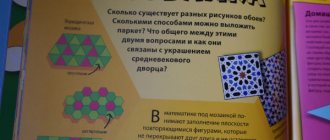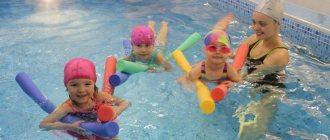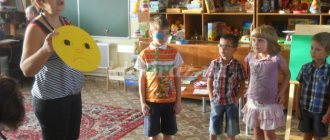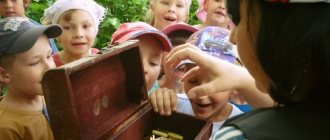What is the profession
Educators are teachers who work with children under 7 years of age. They look after children and are involved in their development. This is a sought-after profession, whose representatives work in kindergartens, camps and additional education institutions. Demand for educators continues to grow as the government plans to build 760 public kindergartens in Russia by 2021 and continues to support private institutions in the regions.
Most often, a new specialist begins his professional career as an assistant teacher. In some cases, you can become one even without specialized education. He cannot take part in conducting classes. Monitors cleanliness and acts as a nanny. If a specialist has received a professional education, he moves to the next auxiliary level - the position of a junior educator. Now he is allowed to teach classes. After receiving full qualifications, he becomes an independent specialist. And after three years of work, he can become a senior teacher, and then the head of a kindergarten.
Teachers work directly with children. Their main task is to promote the diversified development of children. They teach children the rules of hygiene, engage in their creative and mental development through playful forms and help develop social skills in the group. Teachers interact not only with their students. They communicate closely with parents, fill out paperwork and monitor the condition of the premises.
The senior educator develops methodological plans, programs and recommendations. He is responsible for reporting, organizing events and supervising the work of other teachers.
The manager is in charge of management. This position is not a teaching position, but requires an understanding of all processes in a kindergarten.
At the stage of planning your professional activity, it is important to immediately determine your career path in order to gradually move closer to your desired position.
What does a preschool teacher do?
A preschool teacher is a profession that suits active and friendly people.
The responsibilities of a preschool teacher include the training and diversified development of preschool children. A person trained in the specialty “Pedagogy and Methods of Preschool Education” takes care of children every day, introduces them to the rules of etiquette and table behavior, develops speech and logical skills, and also constantly ensures that children are safe.
To work in this profession, you must have a secondary specialized or higher education in the field of pedagogy or psychology. It is also possible to obtain a specialty by completing professional retraining courses.
Work by profession
Preschool teachers are in demand in public and private kindergartens, boarding schools, as well as centers for additional preschool education. Specialists spend most of their working time standing, so there is a list of medical contraindications for this profession.
The presence of cardiovascular diseases, vestibular disorders, and diseases of the central nervous system can interfere with full-fledged work. Persons with mental disorders, as well as hearing and visual impairments are not allowed to work with children under 7 years of age.
Salary
The average salary of a kindergarten teacher in our country ranges from 15,000 to 70,000 per month. The greatest income is received by specialists working in private educational institutions.
The total income of a preschool teacher depends on the qualifications and availability of the category. Specialists who lead one or more additional sections receive increased salaries.
Advantages and disadvantages of the profession
Working in a profession develops one’s own creative potential, and also opens access to certain government benefits. Preschool education workers have long leave (at least 42 days), and also have the opportunity to enroll their own child in kindergarten without waiting in line.
However, the work of a teacher is associated with a lot of stress. Professionals working with children often encounter parental misunderstandings. Due to constant contact with people, caregivers have a high risk of contracting airborne respiratory diseases.
Personal qualities
A good teacher should be active, cheerful and tactful. When working with children, it is important to avoid irritability. To keep children's attention, it is desirable to have organizational skills and good artistic abilities. You need to be able to quickly find contact with young children, be responsive and fair.
Where to study to become a teacher?
At the International Academy of Expertise and Assessment, you can obtain the profession of a preschool teacher in 3 months on the basis of higher or secondary vocational education:
- One of the most affordable prices in Russia
- Fully distance learning from the comfort of your home
- Diploma of professional retraining of the established form
- Certificate of compliance with professional standards worth 10,000 rubles. For a present!
- Valid license for educational activities
- More than 10,000 graduates from 85 constituent entities of the Russian Federation.
You can find out more details and apply for training here: https://educator.maeo.rf
Advantages and disadvantages of working as a teacher
To assess the attractiveness of your future profession, study the advantages and disadvantages of the job ahead of you.
Benefits include:
- A passionate team of kindergarten teachers are dedicated to their work and fully immersed in teaching. Here you can meet like-minded people who will support colleagues in their professional growth.
- Freedom for creative projects As a rule, heads and senior teachers encourage non-standard ideas for organizing activities and space in the kindergarten.
- Working with children Only those who love children should become teachers. Then working with them will be a pleasure.
- The opportunity to send your child to kindergarten without a waiting list When a specialist has his own children, this privilege becomes very pleasant.
- Extended leave Educators are entitled to 42 days of leave to recuperate and return to work. At the same time, good vacation pay is paid.
Disadvantages include:
- Strict schedule The teacher’s working day begins at 7.00-7.30 in the morning. Lateness is unacceptable. The working day ends in the evening when the last child is picked up. Some parents don't always do this on time.
- Emotional burnout Teachers are at psychological risk. To avoid burnout, it's important to understand the triggers of burnout.
- A lot of paperwork The teacher's responsibilities include filling out reports and forms. In some institutions they do this work by hand. Others have simplified this work by transferring it to electronic format.
- Emotional involvement in children's lives Children quickly become attached to their caregivers and can talk about difficult situations that happen at home. Problems in a child’s family can become a moral burden for teachers.
- Difficulty communicating with parents Sometimes you come across scandalous or indifferent parents. The teacher has to interact with everyone. The best assistant will be politeness and professionalism.
- Responsibility for the life and health of children The teacher is responsible for the children while they are at his disposal. Therefore, it is important to monitor each child and take care of his safety.
Job descriptions for kitchen (food department) workers at preschool educational institutions according to Professional Standards
New job descriptions for employees of the catering unit (kitchen) of a preschool educational institution (kindergarten), developed in 2019-2020 on the basis of professional standards, include the job description of a preschool educational institution cook according to Professional Standard 33.011 “Cook”, as well as a chef and kitchen worker according to the EKS.
download: Documentation on Fire Safety in Preschool Educational Institutions 38 documents taking into account laws as of September 8, 2021!
Job descriptions for Professional Standards:
- Job description of a preschool educational institution chef (professional standard)
- Job description of a cook in a preschool educational institution (professional standard)
- Job description of an assistant cook at a preschool educational institution (Profstandart)
Job descriptions for CEN:
- Job description of a chef at a preschool educational institution (EKS)
- Job description of a cook in a preschool educational institution (EKS)
- Job description of a kitchen worker at a preschool educational institution (EKS)
download: Instructions for the catering unit (kitchen) Instructions for the catering unit of the School, preschool educational institution, Canteen, Restaurant, Cafe. Update: 09/05/2021
For completeness, the proposed package of job descriptions according to the professional standard for a preschool educational institution (kindergarten) is supplemented by some job descriptions developed in accordance with new laws in the field of education and a unified qualification directory of positions.
We recommend going to: Instructions for fire safety in preschool educational institutions Instructions for labor protection in the kitchen of preschool educational institutions
If you liked the page, share it on social networks:
What are the requirements for the position of a teacher? Who can work as a teacher
The teacher is often one of the first “strangers” adults with whom the child interacts. Therefore, he must meet certain requirements, regularly develop his skills and confirm his qualifications every 5 years.
In addition to developed professional and personal qualities, the teacher should not have an active criminal record or protracted mental illness.
Professional skills
The activities of educators are regulated by the state professional standard for teachers. According to it, a specialist must have a secondary or higher pedagogical education; another option is a diploma from an institution of additional professional education. For training, it is important to choose a program developed in accordance with professional standards with a certain required number of academic hours. It may be called “Pedagogy and methods of preschool education,” as in ABiUS.
The teacher must understand child psychology, developmental psychology, the theory and methods of raising children of primary preschool age.
However, it is not enough to acquire knowledge; you must learn to apply it. For example, a professional must be able to determine the psychological state of a child and identify his needs.
An additional advantage in employment will be given to a teacher who has studied speech therapy pedagogy in depth or has mastered non-standard pedagogical methods, for example, Montessori. Also of great importance is knowledge of the basics of special pedagogy, which concerns children with disabilities. Since increasingly, kindergartens are becoming incorporated, which implies joint education of children with different abilities.
Personal qualities
Each institution usually has local requirements according to which managers select candidates. At the same time, it is difficult to say where the requirements for teachers are more stringent - in public kindergartens or in private ones.
Employers typically expect a childcare provider to:
- sociable in order to successfully find an approach to children and their parents
- friendly so that children quickly gain trust in a stranger
- with a positive mindset to cope with the complexities of a difficult profession
- caring and attentive to children, so that parents calmly trust their child’s teacher
- creative to come up with interesting activities and holidays
- inquisitive, to explore the world with children and enjoy discoveries with them
- stress-resistant to avoid emotional burnout and excessive emotions when dealing with parents or disobedient children
- aimed at development, so that the teacher has a desire to improve their skills
Who is suitable for working as a teacher?
Most often, a person gets the idea of becoming a teacher when he notices his warm attitude towards children. But as he gets acquainted with the specifics of the profession, he discovers that love for children and the ability to work with them are two different things. Therefore, you should initially check whether he should go into teaching. The qualities described below characterize a person who is ready to become a teacher:
- You are responsible and know how to evaluate your strengths.
- You are attentive to details: in people's behavior and in the environment.
- You are not afraid of unexpected situations and can react calmly.
- You are ready to immerse yourself in work and constantly develop in your chosen direction.
- You know how to control yourself and your emotions.
- You have high emotional intelligence and empathy.
- You understand all the risks of your profession
What education is needed to work as a teacher?
You can study to become a teacher at a special college, university or in centers of additional professional education.
People are admitted to college after the ninth and eleventh grades of school. College students spend a lot of time on practical preschool skills. They undergo internships in kindergartens and can gain useful experience by the age of 18-20.
At the university, a student can go to the Faculty of Pedagogy and receive a specialty as an educator. Most diplomas labeled “preschool education” are well received by future employers. Over the course of 4-5 years, students deeply study the basics of pedagogy, psychology and health, and also become acquainted with new trends in education.
Without pedagogical education
If your first higher education does not concern pedagogy, you can become a teacher by completing a professional retraining program at additional vocational education institutions and receive a standard diploma in 2 or 4 months without interrupting your job.
To work as a junior teacher or assistant, appropriate vocational training programs with obtaining a certificate and obtaining qualifications are sufficient. All these programs are available in ABiUS.
- Retraining program “Preschool teacher”
- Professional training program “Junior teacher”
- Vocational training program "Teacher's Assistant"
Once you have received your specialized education, you can deepen your knowledge through advanced training programs.
Job descriptions for preschool maintenance personnel according to Professional Standards
New job descriptions for the maintenance and technical staff of a preschool educational institution (kindergarten) according to professional standards and Federal State Educational Standards in 2020 include the job description of the chief accountant and accountant of a preschool educational institution according to Professional Standard 08.002 “Accountant”, a labor protection specialist according to Professional Standard 40.054 “Specialist in the field of labor protection ", the job description of a clerk according to Professional Standard 07.002 "Specialist in organizational and documentation support for the management of an organization" and a janitor according to Professional Standard 16.007 "Comprehensive territory cleaning worker".
download: Job descriptions for preschool educational institutions (Profstandard) 31 instructions individually and in packages, updated - September 5, 2021!
Job descriptions for Professional Standards:
- Job description of the deputy head of chemical engineering (professional standard)
- Job description of the deputy head of administrative affairs (professional standard)
- Job description of preschool caretaker according to professional standards
- Job description of a nanny in a preschool educational institution (professional standard)
- Job description of an assistant preschool teacher according to professional standards
- Job description of a junior preschool teacher according to professional standards
- Job description of the chief accountant of a preschool educational institution (professional standard)
- Job description of an accountant at a preschool educational institution (professional standard)
- Job description of a labor protection specialist in a preschool educational institution (professional standard)
- Job description of a preschool educational institution clerk (professional standard)
- Job description of the secretary of the head of a preschool educational institution (professional standard)
- Job description of a storekeeper at a preschool educational institution (professional standard)
- Job description of a preschool janitor (professional standard)
- Job description of a plumber at a preschool educational institution (professional standard)
Job descriptions for CEN:
- Job description of a nutritionist in a preschool educational institution
- Job description of a clerk in a preschool educational institution







